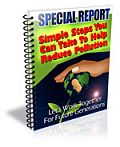Welcome to Composting Guide
Composting Plants Article

If You Are Composting Plants
from:Composting plants is a great way to dispose of your dead plant material along with a great way to create a thick and rich fertilizer or soil conditioner. When you are composting plants you are helping the nature’s circle of life to continue on with the help of mankind. If you are not composting your dead plant materials you are only taking away from natures own energy source that helps to keep the Earth alive. By composting plants, you are putting back into nature what your plants have taken away from it to stay alive throughout their life. When you are composting plants you can use any one or even more than one of numerous methods of composting.
If you compost your yard waste you are composting plants. Whether you are composting your grass clippings after mowing the lawn or if you are composting brush picked up from around the yard after a storm or in the spring you are still composting plants.
Even if you compost the dead, dried up or damaged leaves and foliage from the plants in your flower bed you are helping the environment by returning what you have taken away. After you have weeded your yard, flower beds and garden if you place the removed weeds in a compost bin you are aiding Mother nature to retain nutrients and energy that you have removed from it.
Composting plants can mean a lot of work for you, usually performed in your extra or spare time. Although, this is not an activity free relaxation period most people do consider it to be relaxing.
A few types or methods of composting are worm composting, dog waste composting, composting of leaves, composting plant material, composting bins, composting animal waste, composting food waste and sheet composting. These are only a handful of the numerous composting types or methods available to use, but they seem to be a handful of the most popular methods of composting.
For composting plants you can use many different sources of compost material. Some of these sources include grass clippings, flowers waste, brush, tree branches, leaves, garden waste, dead foliage, fruits and vegetable waste from your home, dead plants from your home and plant material in general.
You will want to avoid placing any glass, plastic or metal of any kind. These are not made from plant material and are not biodegradable. You will also want to stay away from meats, dairy, oily foods and grains. These compost materials can cause your compost bin to have a foul odor and attract insects and rodents.



